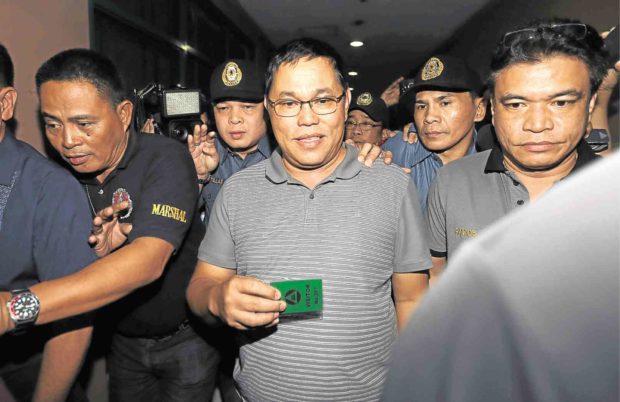Former national police chief Alan Purisima, who is on trial for graft, has asked the Sandiganbayan for permission to leave for the United States in September to visit his son.
In a three-page motion received by the court on July 26, the former director general of the PNP asked the antigraft tribunal’s Sixth Division to allow him to travel to California from Sept. 5 to 27.
Purisima said he would visit his son, who is a student at the Culinary Institute of America in California, noting that he and his family had made plans for the September visit well before he was charged in the Sandiganbayan.
He attached a copy of his plane ticket indicating it had been purchased in March.
Right to travel
Purisima cited Section 6, Article III of the 1987 Philippine Constitution mandating every person’s right to travel “except in the interest of national security, public safety or public health.”
“Accused Purisima humbly submits that his travel abroad does not, in any means, impair the interest of national security, public safety or public health,” he said.
In a July 27 opposition, however, state prosecutors said there was “no urgent or compelling reason” to justify Purisima’s travel abroad.
“There is no plausible and compelling reason for his purported travel. Accused failed to show that the denial of his request to travel abroad would cause him irreparable damage or prejudice,” the prosecutors said in their pleading.
No itinerary
They also noted that Purisima did not include his itinerary in his motion, only the address where he would be staying. “It cannot be therefore denied that the probability of accused of not returning to the Philippines is very imminent,” they added.
The former police chief is facing graft charges over alleged irregularities in the awarding of a PNP contract to Werfast courier service for the delivery of firearms licenses.
The Office of the Ombudsman alleged that there was no public bidding for the contract. It also questioned the credentials of Werfast, which was not yet registered with the Securities and Exchange Commission when the contract took effect in 2011.
